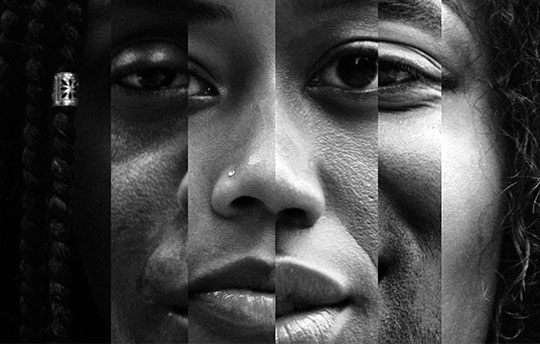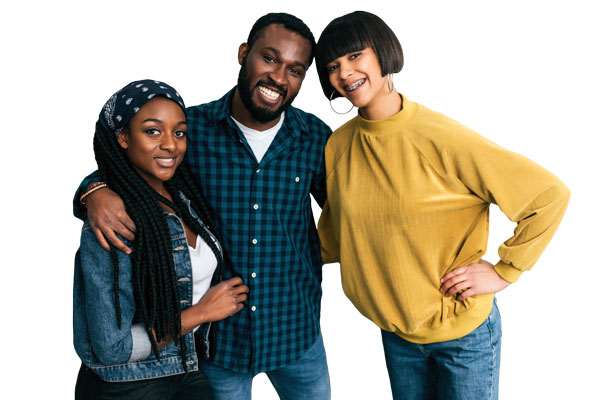 Marketing plays a big role in whether people try or use commercial tobacco products. Being around commercial tobacco ads makes smoking appear more appealing and increases the chance that someone will try smoking for the first time or start using commercial tobacco products on a regular basis. Studies show:
Marketing plays a big role in whether people try or use commercial tobacco products. Being around commercial tobacco ads makes smoking appear more appealing and increases the chance that someone will try smoking for the first time or start using commercial tobacco products on a regular basis. Studies show:
- Neighborhoods and areas with more African American residents tend to have more stores that sell tobacco.
- Tobacco companies promote and advertise at community events in majority-Black neighborhoods
- Tobacco companies advertise more heavily in stores whose customers are mostly African American people.
Tobacco companies use price promotions such as discounts and multi-pack coupons—which are most often used by African American people and other minority groups, women, and young people—to increase sales. Tobacco companies also support cultural events designed to draw in certain groups in the Black community. One recent campaign targeted at Black young adults involved pop-up concerts featuring hip-hop artists in convenience stores.
“They also make donations to minority colleges and universities, elected officials, civic and community organizations, and scholarship programs,” said Samuel Duff, tobacco program community liaison for The Wellness Coalition. “Tobacco is killing us and we have to find a way to change the game.”
Tobacco and Death
African American people are more likely to die from smoking-related diseases (e.g. heart disease, diabetes) than Hispanic people and non- Hispanic, White people. In fact, tobacco use contributes to the three leading causes of death among African Americans— heart disease, cancer, and stroke. There are three main ways tobacco is causing this problem:
- Firsthand Smoke. Smoke inhaled directly by the person using the tobacco product.
- Secondhand Smoke. Smoke from burning tobacco products, like cigarettes, cigars, hookahs, or pipes. It is also smoke that has been exhaled, or breathed out, by the person smoking.
- Thirdhand Smoke. Chemicals from secondhand smoke that seep into surfaces from which they can be released back into the air, such as carpet, walls, furniture, blankets, toys, and more. The residue may give off harmful chemicals for years or even decades.
African American children and adults are more likely to be exposed to secondhand smoke than any other racial or ethnic group. A recent study found that two out of every three African American children ages 3–11 were exposed to secondhand smoke.
Data Shows Health Inequity for African Americans
Commercial tobacco gets in the way of achieving health equity for African American people:
- In 2020, 19.4% of non-Hispanic Black adults currently used any tobacco product.
- In 2021, an estimated 8.2% of non-Hispanic Black youth currently used any tobacco product, compared with 11.0% of non-Hispanic White youth.
- An estimated 3.1% of non-Hispanic Black youth currently used cigars, compared with 1.4% of non-Hispanic White youth.
- African American people usually start smoking at an older age than White people do but are more likely to die from smoking-related disease.
- About the same percentage of African American adults and White adults smoke, but African American people smoke fewer cigarettes per day.
- Despite starting to smoke cigarettes later in life, African American people are more likely than other racial and ethnic groups to have related health problems.
A History of Tobacco Inequity
Some U.S. historical policies and practices have led to mental and physical health risks and challenges, and related long-term health outcomes, for African American people.
African American people have been harmed by unjust practices related to the sale of commercial tobacco. For instance, enslaved people were forced to grow and harvest tobacco that would later be sold.
Tobacco companies have a long history of trying to influence African American people by donating to historically Black colleges and universities and sponsoring scholarships for African American students. They also give money to influential African American people, officials, and organizations. Tobacco companies have also advertised more heavily in magazines with larger numbers of African American readers.
African American people also experience discrimination and harm from systems meant to protect and improve health and well-being, including health care and medical science. Research shows that some African American people may hesitate to seek care because they don’t trust the government or healthcare systems that have treated African American people unfairly in the past.
As recently as the 20th century, doctors and researchers have done studies and medical procedures on African American people without their permission or knowledge. During the Tuskegee Study of Untreated Syphilis in African American Men, researchers allowed Black men with syphilis to go untreated in order to compare their symptoms to Black men without syphilis who were also part of the study.
Other times, African American women were sterilized (made unable to have children) without agreeing to it first. These actions led to mistrust of health care and medical research, and help to explain some of the causes of health disparities.
 Free Help is Here
Free Help is Here
You can quit for good, even if you’ve tried before. In fact, most smokers try to quit many times before they succeed. Quitting now improves your health and reduces your risk of heart disease, cancer, lung disease, and other smoking-related illnesses.
Call the number below for FREE support to help you quit for good, including quit coaching, a quit plan, educational materials, and referrals to local resources.
1-800 QUIT-NOW (1-800-784-8669)
